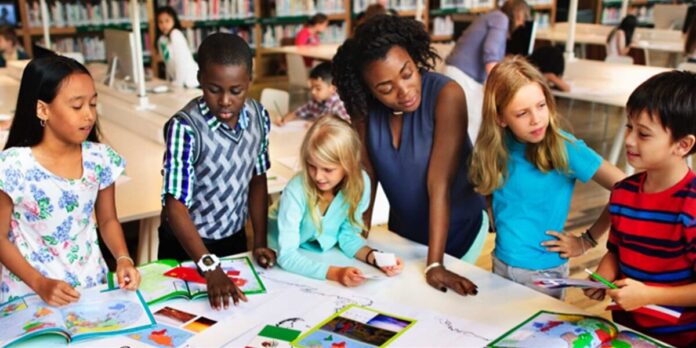Key Takeaways:
- After-school programs can significantly affect students’ academic performance.
- Structured activities help with social, emotional, and physical development.
- These programs support both families and communities, providing stability and growth.
Table of Contents:
- Introduction to After-School Programs
- The Impact on Academic Achievement
- Social and Emotional Benefits
- The Importance of Physical Activity
- Creative and Cultural Enrichment
- Building Life Skills Through Structured Programs
- Supporting Working Families
- Encouraging Community Involvement
- Accessibility and Inclusivity in After-School Care
- Evaluating a Quality After-School Program
Introduction to After-School Programs
In the context of the modern family structure, with most parents working full-time jobs, after-school care has transitioned from a convenience to a necessity. Quality after-school programs bridge the time gap between school release and the end of the workday, providing invaluable constructive outlets that cater to a child’s mental, physical, and creative needs. Moreover, these programs serve as a crucial platform for social interaction, educational enrichment, and personal growth, extending a child’s opportunities beyond the conventional classroom and into a more dynamic environment where they can thrive. The demand for these programs reflects an understanding that meaningful engagement after school can lay the groundwork for future success and well-being.
The Impact on Academic Achievement
Participation in after-school programs has been linked to increased homework completion, better grades, and higher academic aspirations. By extending education beyond the typical school day, these programs provide opportunities for children to solidify their grasp of academic concepts through interactive and alternative learning methods. Tutors and program facilitators can provide individualized attention, enabling students to navigate challenging subjects and stirring a passion for learning in fields that extend beyond their school curriculum. This supplemental engagement helps to even the playing field, offering support to those who may not have access to private tutoring or extra assistance at home, thereby closing the academic achievement gap.
Social and Emotional Benefits
When the school day ends, a child’s social skills and emotional intelligence development don’t have to pause. After school programs offer a unique environment where children interact with diverse groups and learn to collaborate and communicate more effectively. They foster resilience and a sense of belonging among attendees. The nurturing atmosphere cultivates a support system for children, giving them a social toolbox essential for navigating life’s complexities.
The Importance of Physical Activity
With growing concern over childhood obesity and sedentary lifestyles, the role of physical activity in after-school programs is more critical than ever. Integrating exercise into a child’s daily routine has been shown to improve physical health, concentration, and mental understanding. Activities ranging from team sports to dance and outdoor adventures enable children to fulfill this vital health component while also discovering the joy of active living and the importance of teamwork and fair play.
Creative and Cultural Enrichment
Where school curricula are increasingly driven by standardized testing and academic benchmarks, after-school programs shine by offering a sanctuary for imagination and exploration through the arts and the humanities. The value of creative expression, whether through drama, music, or visual arts, cannot be overstated in its contribution to a child’s intellectual and emotional development. These programs provide a canvas for children to reflect on their identities and to appreciate the rich tapestry of cultures around them. Engaging in these activities helps breed a generation of critical thinkers who appreciate, understand, and contribute to the cultural vibrancy of their communities.
Building Life Skills Through Structured Programs
One of the lesser celebrated yet fundamental aspects of after-school programs is the focus on developing essential life skills. Here, children can learn the fundamentals of responsibility, leadership, and accountability through various activities designed to mimic real-world scenarios. Kids can take charge of projects, manage their time effectively, and learn the value of commitment and hard work. Whether through a science fair presentation, coordinating a community event, or simply maintaining a clean and organized space, these structured activities plant the seeds for a well-rounded adult life equipped with a robust set of practical skills.
Supporting Working Families
For working families, the provision of after-school care is instrumental in balancing work responsibilities with the task of raising children. The assurance that their offspring are engaged in beneficial activities frees parents to focus on their professional obligations without the added stress of childcare during the critical hours after school. In addition to offering a safe environment, these programs act as an extension of the family unit, providing stability, routine, and a sense of security for both children and their parents. The positive impacts of this support are felt across society, as families are better able to contribute economically and socially, knowing that their children are in good hands.
Encouraging Community Involvement
The influence of after-school programs transcends the individual, radiating outwards to benefit the wider community. Children learn the importance of civic engagement and are often involved in local projects that foster a sense of communal responsibility. Such activities can range from environmental stewardship, such as participating in a local clean-up, to cultural appreciation, including attending a neighborhood cultural fair. These experiences enrich the children’s perception of their roles within their communities, strengthen communal bonds, and instill a lifelong commitment to giving back.
Accessibility and Inclusivity in After-School Care
An effective after-school program is diverse and inclusive, providing a safe space for every child, regardless of background or capabilities. They promote equality by providing subsidized fees for families in need or tailor-made activities for children with disabilities. It’s in these environments that children learn to celebrate differences and act with empathy, setting a foundation for an inclusive society. Welcoming children from all walks of life, after-school programs eliminate barriers to participation, ensuring that every child has an equal chance to benefit from these enriching experiences.
Evaluating a Quality After-School Program
Selecting the right after-school program is a decision that requires careful consideration from parents and guardians. It involves assessing the qualifications of the staff, the safety protocols, the variety of activities provided, and the underlying ethos. A tremendous after-school program is characterized by its ability to inspire, educate, and provide a platform for growth in a nurturing environment. Parents should seek out programs that strike the right balance between structure and freedom, allowing children to explore their interests while instilling the resilience and skills needed for later life. Families can find a program that aligns with their values and supports their child’s growth by prioritizing aspects such as inclusivity and a holistic approach to child development.



